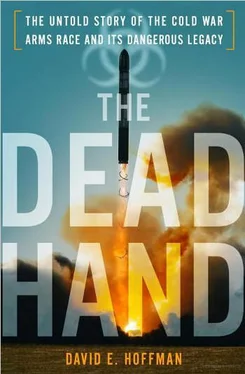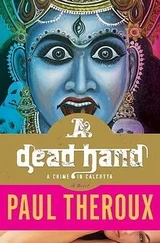With his silky voice, slightly cocked head, crinkly smile, old-fashioned suits and gauzy nostalgia for an era of American leadership in the 1950s, Reagan projected a sense of purpose and unbridled optimism, and he conveyed it at a time of troubling doubts for Americans. On November 4, 1979, nine days before Reagan formally announced his candidacy for president, Iranian students seized the U.S. Embassy in Tehran and took Americans hostage. In December, the Soviet Union invaded Afghanistan. Voters were fatigued from Vietnam, Watergate, high inflation and energy shortages. From President Carter they had heard about the need for sacrifice and discipline; Reagan, by contrast, offered them a sky-is-the-limit vision that days of plenty could be returned to American life. 13
This optimism also ran through Reagan’s ambitions for competition with the Soviet Union. He believed that communism and socialism would ultimately give way to a victory of the American way. While others saw the Soviet Union as an unfortunate yet permanent bastion of global power, Reagan envisioned relentless competition aimed at overturning the status quo. “The great dynamic success of capitalism had given us a powerful weapon in our battle against Communism —money,” Reagan later recalled. “The Russians could never win the arms race; we could outspend them forever.” 14He declared in his 1980 campaign speech that he wanted to “show by example the greatness of our system and the strength of American ideals.” He added,
The truth is we would like nothing better than to see the Russian people living in freedom and dignity instead of being trapped in a backwash of history as they are. The greatest fallacy of the Lenin-Marxist philosophy is that it is the “wave of the future.” Everything about it is primitive: compulsion in place of free initiative; coercion in place of law; militarism in place of trade; and empire-building in place of self-determination; and luxury for a chosen few at the expense of the many. We have seen nothing like it since the Age of Feudalism.
Reagan’s description of the Soviet system as backward and restrictive was a penetrating insight. But there was also a hidden contradiction in this argument. How could the Soviet Union be threatening militarily while also “primitive” and rotting from within? How could it sustain a global arms race abroad while people stood in lines at home? The answer offered by many at the time was that the Soviet military had first claim on the country’s resources, and therefore the defense sector could fatten itself while the rest of the country suffered. This was true; hypermilitarization of the Soviet state did siphon off a huge portion of the country’s resources. But it was also true that, in many instances, the internal rot sapped military power. The Soviet defense machine was undermined by the very weaknesses Reagan spotted elsewhere in the system. A reckoning was coming for the Soviet Union. And even if he did not see every detail clearly, Reagan seemed to understand the big picture very well: the system as a whole was tottering and vulnerable.
———
Soviet leaders had not trusted Carter, but they reacted with anger and paranoia to Reagan. At his first press conference as president, Reagan was asked if the Kremlin was still “bent on world domination that might lead to a continuation of the Cold War” or whether “under other circumstances détente is possible.” Reagan responded that détente had been a “one way street that the Soviet Union has used to pursue its own aims,” and added that Soviet leaders “have openly and publicly declared that the only morality they recognize is what will further their cause, meaning they reserve unto themselves the right to commit any crime, to lie, to cheat, in order to attain that, and that is moral, not immoral, and we operate on a different set of standards. I think when you do business with them, even at a détente, you keep that in mind.”
In Moscow, the aging leadership wanted most of all to preserve the strategic parity they felt they had achieved in the late 1970s, recalled Anatoly Dobrynin, former ambassador to Washington. “For all their revolutionary rhetoric,” he said, “they hated change….” They wanted some kind of military détente, even if political cooperation was out of the question, but the era of détente was over. Reagan didn’t believe in it. “In retrospect, I realize that it had been quite impossible for me at that moment to imagine anything much worse than Carter,” Dobrynin said. “But it soon became clear that in ideology and propaganda Reagan turned out to be far worse and far more threatening.” 15
Nonetheless, the Soviet Union was not at the top of Reagan’s agenda in his first year, which was devoted to driving Congress to approve lower taxes, budget cuts and defense rearmament. Reagan believed that before serious attention could be given to dealing with the Soviets, the United States had to first embark on a demonstrable military buildup. Reagan resumed building the B-1 bomber Carter had canceled, pushed ahead with a new basing mode for a new land-based missile, the MX, and with construction of a new Trident II D-5 submarine-launched ballistic missile with more accuracy and range. Reagan also secretly approved more aggressive U.S. naval and air maneuvers aimed at the Soviet Union. His CIA director, William Casey, expanded covert actions around the globe aimed at hemming in the Soviets. But Reagan did not rush to advance superpower diplomacy. He did not meet or talk to Soviet leaders.
After surviving an assassination attempt on March 30, 1981, when he was shot by John Hinckley Jr. outside the Washington Hilton Hotel, Reagan began to think about what he could do to end the arms race. “Perhaps having come so close to death made me feel I should do whatever I could in the years God had given me to reduce the threat of nuclear war; perhaps there was a reason I had been spared,” he recalled later. In the first week after leaving the hospital, he took out a yellow legal pad and wrote a personal letter to Brezhnev, by hand. Still in his bathrobe and pajamas, Reagan passed it around to aides at a meeting April 13. The State Department didn’t like it and rewrote it into a stiff message. Reagan didn’t like the rewrite, and in the end, Brezhnev got two letters, one formal and one in Reagan’s hand. 16James A. Baker III, who was Reagan’s chief of staff, recalled that the letter was “Reagan 101: a sermon that basically said the Soviets had it wrong on economics, politics, and international relations, and that the United States had it right. It’s as if the president thought maybe Brezhnev didn’t know this stuff and that if he just heard it, he’d come to his senses.” 17Brezhnev replied in “the standard polemical form, stressing their differences,” without any effort to be personal, recalled Dobrynin. Reagan remembered “an icy reply from Brezhnev.” 18
At a private moment at an economic summit in Ottawa on July 19, 1981, French President François Mitterrand gave Reagan some stunning news. The French had recruited a defector in place in Moscow, whom the French had code-named “Farewell,” and he had provided a huge treasure trove of intelligence. Colonel Vladimir Vetrov was an engineer whose job was to evaluate the intelligence collected by the KGB’s technology directorate—Directorate T—responsible for finding and stealing the latest in Western high technology. A special arm of the KGB, known as Line X, carried out the thefts. Motivated to help the West, Vetrov had secretly photographed four thousand KGB documents on the program. After Mitterrand spoke to Reagan, the materials were passed to Vice President George H. W. Bush, and then to the CIA in August.
The dossier “immediately caused a storm,” recalled Thomas C. Reed, a former Pentagon official who later worked on the National Security Council staff under Reagan. “The files were incredibly explicit. They set forth the extent of Soviet penetration into U.S. and other Western laboratories, factories and government agencies.” 19
Читать дальше












